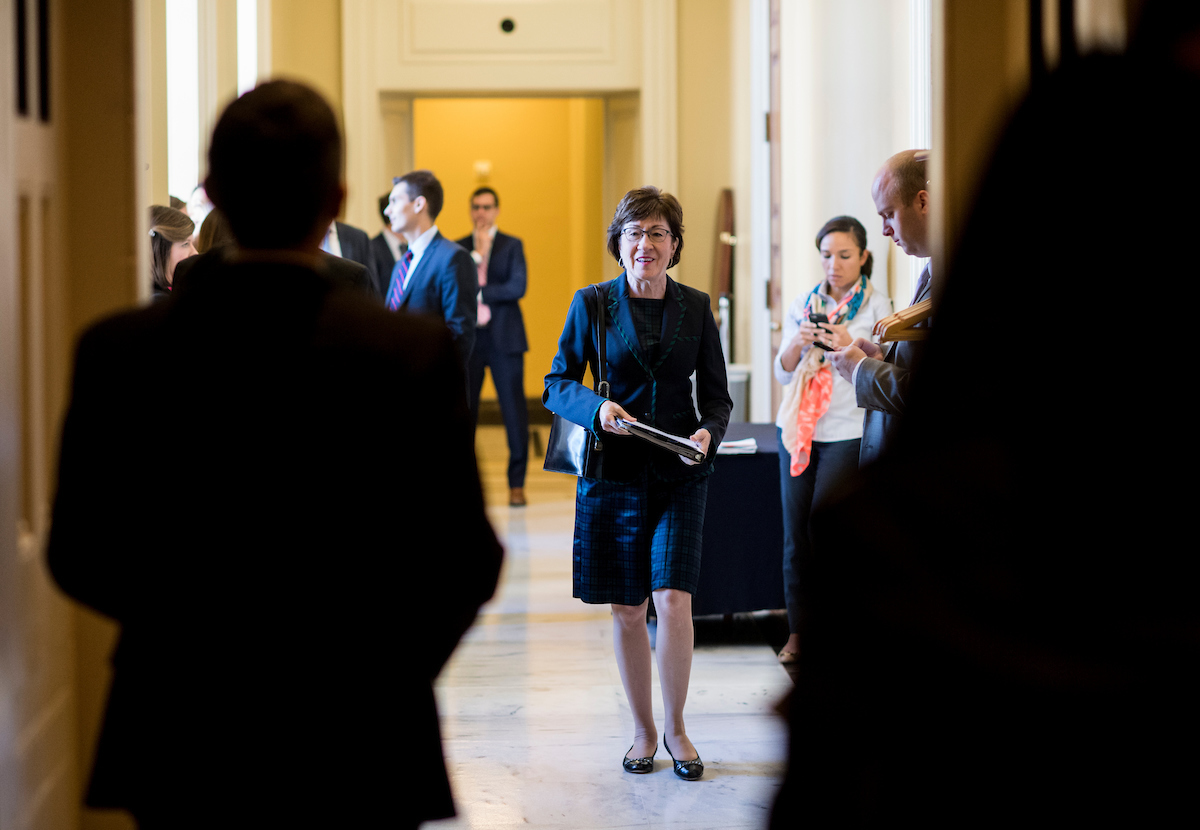Even Senators Hate Robocalls
Aging Committee hearing focuses on scam calls to seniors

Even senators are plagued by their home phones ringing off the hook with inappropriate and even illegal robocalls.
“My husband and I received so many on our landline in Bangor that we discontinued the landline,” Maine Republican Susan Collins said Wednesday.
The Senate Aging Committee chairwoman was presiding over a hearing on combating robocalls and other telephone scams that have particularly targeted senior citizens.
Lois Greisman, who works for the Federal Trade Commission fighting scammers, testified that the FTC has been getting 400,000 complaints a month in 2017 about unwanted telephone calls. That’s despite the existence of the national do not call registry.
The Aging Committee hearing focused on commercial solicitations and scams, rather than political calls.
“All of us, the entire country, is keenly aware of the robocall problem,” Greisman said. “Namely: unwanted, abusive telephone calls disturbing consumers’ privacy and frequently using fraud and deception to pitch goods and services, which cause significant harm.”
Pennsylvania Attorney General Josh Shapiro said that in addition to increased consumer education, particularly for seniors, there should be consideration of how debt collectors employed by the IRS make contact with people who have actual tax debt versus the scam artists.
“IRS impersonation scams are at the top of that list, where they call people and falsely claim to represent the Internal Revenue Service. The callers will claim that, say, back taxes are owed by the recipient,” he said. “They threaten to have them arrested and demand payment typically via wire transfer.”
Shapiro noted that a law allowing the IRS to employ the services of private debt collectors has made it impossible to simply say that all phone calls about federal tax debts are fraudulent, as used to be the case.
Pennsylvania Sen. Bob Casey, the ranking Democrat on Aging, joined Shapiro in a letter to the Federal Communications Commission calling for finalizing a rule allowing the telecommunications industry to block the “spoofing” of phone numbers.
The duo said that nearly 19 billion robocalls may have taken place since the rule was floated eight months ago, and it should be finalized quickly.
“Making it harder for these con artists to appear as though they are calling from a government agency or legitimate business, as your proposed rule would do, will go a long way. If an unknown number appears on a caller ID, it is less likely that a loved one will answer the phone and engage in a conversation that results in their hard-earned savings winding up in the hands of criminals,” Casey and Shapiro wrote.





